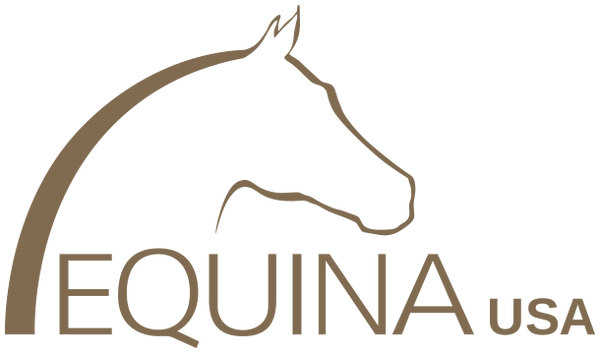I didn’t used to think the equine body and mind needed supplementation beyond proper feed. We have always fed high quality timothy and alfalfa hay, and strongly recommended it to our clients. My horses have always grazed on lush pasture; they looked good and performed well. I had used a few supplements throughout the years without much success, which reinforced these ideas. I thought things were optimal.
One day a client offered me a bucket of Equina’s Meganutril complete nutritional supplement to try on my Lusitano stallion. In an attempt to keep an open mind, I fed it to him for 3 days. He wasn’t impressed, and neither was I. I didn’t even put forth the effort to get him to eat it.
A few years later, that client became a friend and a mentor in horsemanship as well as some of the healing arts.
Out of respect for her, I tried Meganutril again, this time feeding it to my herd of 10 used for polo, dressage, and breeding. At the same time, I began feeding it to horses we were rehabilitating with various injuries and illnesses. My stallion even decided to eat it. My friend was willing to spend time teaching me what she knew of Chinese medicine and various forms of energy healing as well as classical horsemanship and methods of equine rehabilitation she had learned in Europe and Asia. Naturally, I questioned some of her methods and we would challenge each other daily, but I always appreciated her time. When she insisted that I feed the Equina products, I did it mainly because I did not want to let her down after all she had done for me. I was diligent in giving the Meganutril to all my horses and all possible patients. Soon, we had access to some of the specialized products and I incorporated those as well. I studied the source in Germany well enough to know the quality was excellent and the ingredients were sensible, however, I had no particular expectations.
The results were significant.
Horses that were normally shiny on springtime grass had dimensional metallic dapples. Horses with nice toplines now had fuller toplines with increased suppleness to their muscles. Over the course of a year, poor hoof quality that I had been battling in a few cases became a thing of the past. Clinicians and clients were starting to ask me what I feed my horses. They were impressed with what they saw vitality, appetite, focus, rideability, soundness, digestion in a severe post-op colic case, chronic skin conditions healed—the list and details go on.
As a veterinarian who practices traditional medicine, I am a scientist and a bit of a skeptic by nature. I had to admit, my friend was right.
Sadly, my brilliant friend passed not long ago at a very young age. When her family asked if I would like to take part in what she had done to continue importation of the Equina products into the US the answer was a definite YES. She taught me to look deeper and further refine my image of what each horse can be. Consequently, these supplements have become a requirement for my personal horses, rehabilitation cases, and many of my clients’ horses. I like to believe my friend is satisfied to know that her efforts with one stubborn vet have already helped a fair number of horses achieve better health!Reflection in this story helps me to remember it does make sense on a very basic scientific level that horses should benefit from a good supplement.
High quality forage will provide a large component of the daily requirements of an average horse under minimal stress, but what about those horses used for athletic events or breeding have increased nutrient requirements, as do those with physical challenges such as illness, stress, injury, or growth.
Challenging our own assumptions and those within the horse industry is not easy. But you can start by balancing out the nutrients for our horses, so they do not experience deficiency or excess. Remember that:
- Most forages do not have ideal levels or ratios of the important vitamins, minerals, or trace elements.
- Plant and soil content vary.
- Some nutritional value is lost in hay as it is stored.
- Production of vitamins and minerals can decrease potency.
There are many factors to consider when deciding what is best for our horses. It is fascinating to consider each nutrient and its function within the equine body. It is inspiring to me knowing how much we can help the horses by tapping into a source of optimal support. I hope this inspires you too.
- Dr. Sara Perkins, DVM

